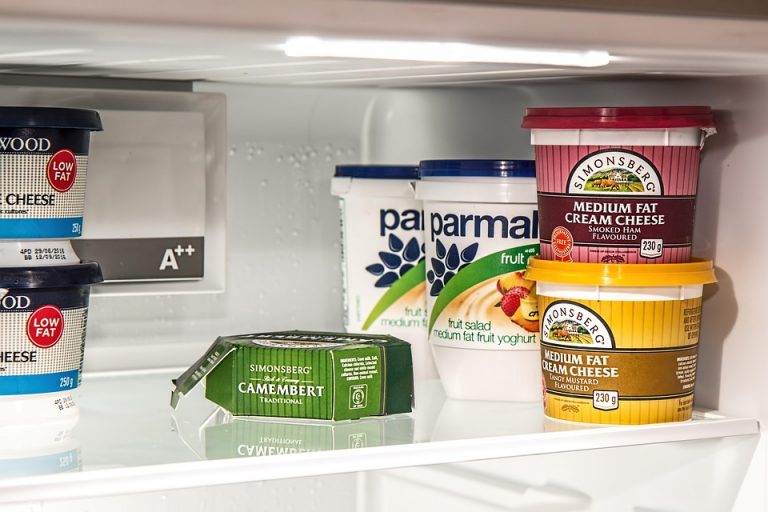Decentralized Finance (DeFi) is shaking up the banking world, and you need to know how it affects your financial future. Imagine having control over your money without the hassles of traditional banks. Sounds enticing, right? Let’s dive into what DeFi is, why it’s crucial for you, and whether it’s here to stay or just a passing fad.
Contents
What is Decentralized Finance?
At its core, decentralized finance refers to a financial system built on blockchain technology that eliminates intermediaries like banks. Instead of relying on traditional financial institutions, DeFi uses smart contracts—self-executing contracts with the terms of the agreement directly written into code. This not only enhances security but also makes transactions quicker and more transparent.
Why Does DeFi Matter?
You might be wondering why you should care about this. After all, banks have been around for centuries. Here’s the kicker: DeFi offers greater accessibility, lower costs, and more financial freedom than traditional banking. You can lend, borrow, trade, and earn interest on your assets—all without needing a middleman.
Consider these benefits:
- Lower Fees: Without banks taking a cut, more of your money stays in your pocket.
- Accessibility: Anyone with an internet connection can participate, regardless of their location or financial status.
- Transparency: Every transaction is recorded on the blockchain, meaning no hidden fees or shady practices.
The Mechanics of DeFi
Understanding the mechanics behind DeFi helps you appreciate its potential. Let’s break it down:
Smart Contracts
Smart contracts are the backbone of DeFi. These agreements automatically execute once conditions are met. For instance, if you want to borrow funds, the smart contract will ensure that collateral is locked until the loan is repaid. This minimizes the risk for lenders and makes borrowing more accessible for everyone.
Decentralized Exchanges (DEXs)
Forget about centralized exchanges that control your funds. DEXs allow you to trade directly with others, maintaining control over your assets without trusting a third party. Examples include Uniswap and SushiSwap. They offer liquidity pools where users can earn fees by providing their assets for trading.
Yield Farming and Staking
These terms might sound complex, but they’re pretty straightforward. Yield farming allows you to earn rewards by lending your crypto assets. Staking is when you lock up your cryptocurrency to support a blockchain network, and in return, you earn more cryptocurrency.
Both methods can be lucrative, but they come with risks, so always do your homework before diving in.
Stablecoins
Stablecoins are digital currencies pegged to a stable asset, such as the US dollar. They bridge the gap between the volatility of cryptocurrencies and the stability of traditional currencies. This means you can trade or invest without worrying about wild price swings.
The Risks of DeFi
Before you jump headfirst into this brave new world, it’s essential to understand the risks involved. DeFi isn’t without its pitfalls.
Smart Contract Vulnerabilities
Even though smart contracts offer security, they can be hacked or contain bugs. A flaw in the code can lead to loss of funds. Always research the projects you invest in and check if they’ve undergone audits.
Market Volatility
The crypto market is notoriously volatile. While the potential for high returns is alluring, the risk of losing your investment is very real. Be prepared for ups and downs.
Regulatory Uncertainty
Governments worldwide are still figuring out how to regulate DeFi. This uncertainty could impact the stability and legality of DeFi projects. Stay informed about regulatory developments that could affect your investment.
Is DeFi the Future of Banking?
This is the million-dollar question. Here’s the truth: DeFi is more than just a trend. It represents a fundamental shift in how we think about money and finance.
Empowerment and Ownership
Imagine having complete control over your financial destiny. DeFi empowers you to manage your assets without relying on banks. You can dictate how you want to use your money, whether it’s through lending, borrowing, or farming.
Innovation in Financial Products
DeFi is not just replicating traditional bank services; it’s innovating new financial products. From synthetic assets to decentralized insurance, the possibilities are endless. This innovation can lead to better products tailored to your needs.
Collaboration with Traditional Finance
DeFi and traditional finance can coexist. Banks are recognizing the value of blockchain technology and are starting to incorporate it into their services. This collaboration could lead to a more efficient and inclusive financial system.
How to Get Started with DeFi
Ready to take the plunge into DeFi? Here’s how to begin:
Choose a Reliable Wallet
You’ll need a cryptocurrency wallet to store your assets. Options like MetaMask or Trust Wallet are popular and user-friendly. Always keep your private keys safe; they’re the key to your funds.
Research DeFi Platforms
Choose reputable DeFi platforms. Look for projects that have undergone audits and have a strong community backing. Some trusted platforms include Aave, Compound, and MakerDAO.
Start Small
If you’re new to DeFi, start with a small investment. Familiarize yourself with the ecosystem before investing larger sums. Explore lending, borrowing, and yield farming to find what suits you best.
Stay Informed
The DeFi landscape is ever-evolving. Follow reputable news sources and join communities on platforms like Twitter and Discord to stay updated on the latest trends and developments.
The Future of DeFi: Trends to Watch
As DeFi continues to evolve, several trends are emerging that could shape its future.
Interoperability
The future lies in interoperability—different DeFi platforms working together seamlessly. This would allow you to move your assets easily across various networks, enhancing convenience and efficiency.
Decentralized Autonomous Organizations (DAOs)
DAOs are organizations governed by smart contracts. They can make collective decisions without centralized leadership. This democratic approach to governance could reshape how financial systems operate.
Integration with Traditional Finance
Expect to see more partnerships between DeFi and traditional financial institutions. Banks might begin offering DeFi services, blending innovation with established trust.
Bottom Line
Decentralized Finance is not just a fleeting trend; it’s a transformative force poised to redefine how we interact with money. With its promise of greater accessibility, lower costs, and increased control, DeFi can empower you to take charge of your financial future.
But remember, while the potential is immense, so are the risks. Stay informed, start small, and make educated decisions.
Your financial journey is yours to shape. Are you ready to embrace the future of banking?
Frequently Asked Questions
1. What is DeFi?
DeFi stands for decentralized finance, a financial system built on blockchain technology that allows for peer-to-peer transactions without intermediaries.
2. How can I invest in DeFi?
Start by choosing a reliable wallet, researching reputable DeFi platforms, and investing small amounts to familiarize yourself with the ecosystem.
3. What are the risks associated with DeFi?
Risks include smart contract vulnerabilities, market volatility, and regulatory uncertainty. Always do thorough research before investing.
4. Is DeFi safe?
While DeFi offers many benefits, it also comes with risks. Choose audited projects and stay informed to mitigate potential issues.
5. Can DeFi coexist with traditional finance?
Yes, DeFi and traditional finance can work together, leading to more efficient financial services that benefit everyone.








